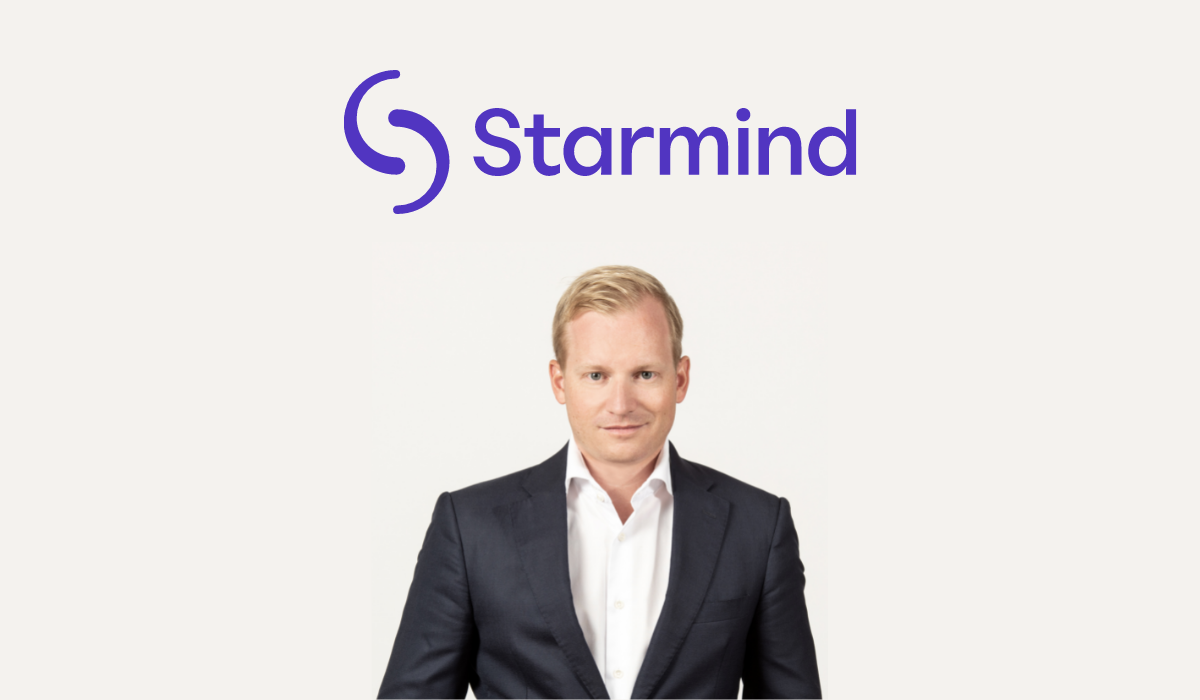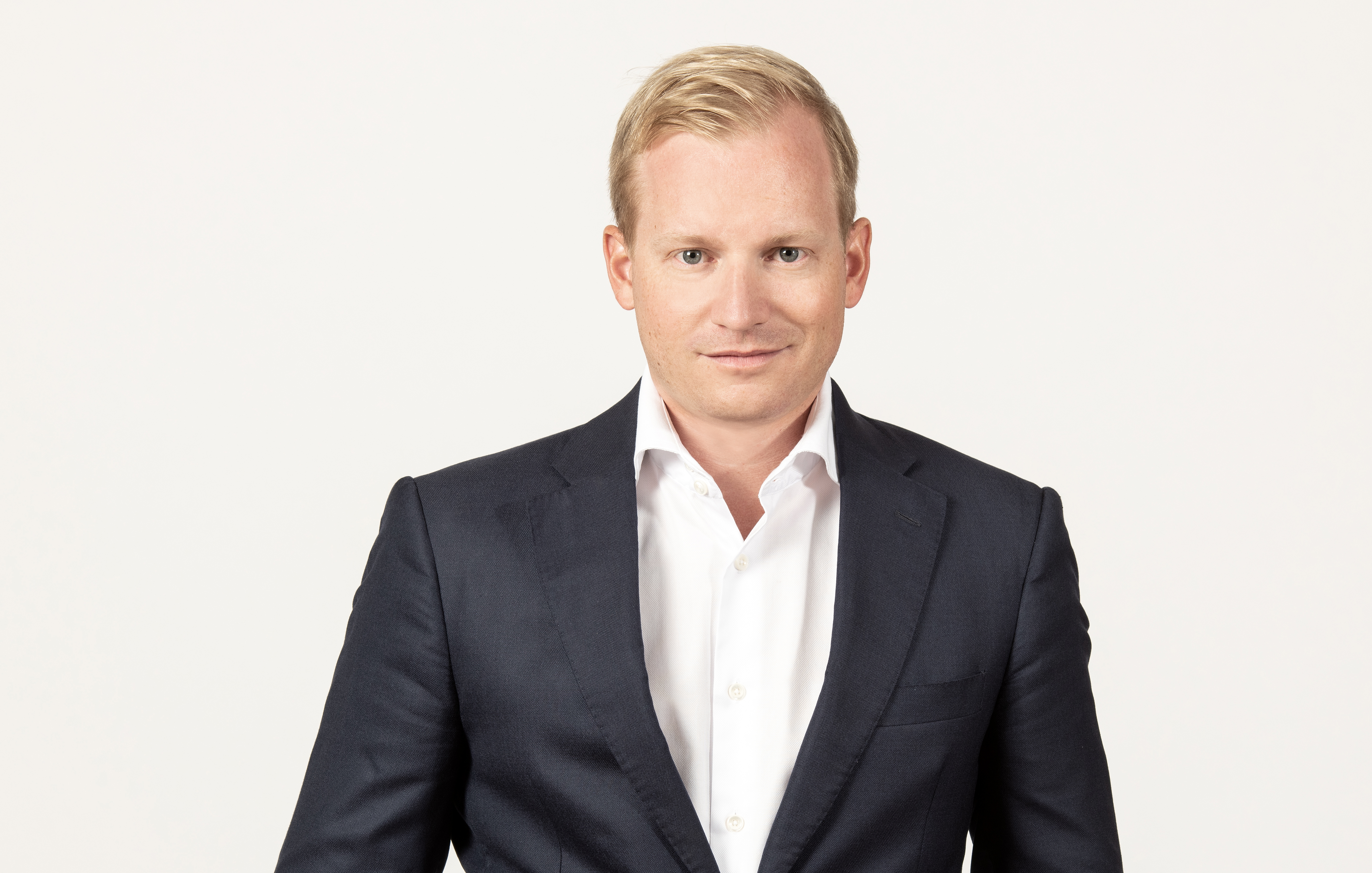First published in Authority Magazine, David Liu's interview with Marc Vontobel uncovers the life lessons, experiences, and people that helped shape himself and Starmind. Along with Starmind's cutting-edge technology that sets a new standard for modern knowledge management systems.
The telephone totally revolutionized the way we could communicate with people all over the world. But then came email and took it to the next level. And then came text messaging. And then came video calls. And so on…What’s next? What’s just around the corner?
In this interview series, called ‘The Future Of Communication Technology’ we are interviewing leaders of tech or telecom companies who are helping to develop emerging communication technologies and the next generation of how we communicate and connect with each other.
As a part of this series, I had the pleasure of interviewing Marc Vontobel.
Marc Vontobel is the co-founder and CEO at Starmind. He is a computer scientist turned serial entrepreneur with a real passion for building high tech companies — which he’s done on multiple occasions from bootstrapping through to double digit million venture capital funding rounds. He is an active member of both the Forbes Technology Council and Global Panel of the MIT Technology Review.
Thank you so much for joining us in this interview series! Can you tell us a bit about your ‘backstory’ and how you got started?
Eleven years ago, we developed a platform that would enable scientists to share knowledge with one another. Instead of spending hours researching a problem, a specialist in the topic of research could access the Starmind solution to ask a question. Although the platform was well received, there was an imbalance in our target audience between users interested in providing knowledge and experience and users willing to pay a small fee to have their questions answered.
Can you share the most interesting story that happened to you since you began your career?
Every day, we work with companies looking to increase their organization’s productivity. We help increase productivity specifically by freeing employees’ knowledge and experience, making it accessible to everyone within their organization.
I remember one prospect meeting vividly. There were about ten participants from the client’s side. This number of attendees was not usual. For this meeting, we decided to start with an icebreaker. All participants were to go around and share a hobby or interest their colleagues possibly didn’t know about them. As people started sharing, they discovered their colleagues had experience and knowledge in areas outside of their day-to-day operations and title. Many expressed how their colleagues’ knowledge and experience shared during this time could be an asset, and benefit them in future projects.
This meeting is a good illustration, on a microscopic scale, of what Starmind provides to organizations daily. This potential client experienced what it was like to access their colleagues’ knowledge and experience. It enabled them to see the massive potential of leveraging and freeing employees’ knowledge at scale before even mentioning Starmind.
Can you please give us your favorite “Life Lesson Quote”? Can you share how that was relevant to you in your life?
Albert Einstein said it beautifully, “Learn from yesterday, live for today, and hope for tomorrow. The important thing is not to stop questioning.”
As an entrepreneur, you constantly make choices and manage people and tasks. It’s nearly impossible to make the best decision every time. I’ve made choices that I’ve thought were right in the moment, only to realize afterward they weren’t. However, failing or making mistakes isn’t unusual for entrepreneurs, as long as you learn from yesterday to avoid future problems. One motto that we try to work by at Starmind is, “fail fast, learn faster,” and I feel it embodies the first part of this quote.
Live for today is significant because if you don’t enjoy the journey, you’ll either get burned out or look back on life wishing you spent your time differently.
Hope for tomorrow is important because a business and the market will naturally fluctuate. Being hopeful or optimistic helps us keep going. Additionally, there is always an opportunity, even when there’s a downturn. You just need to be looking in the right place.
Lastly, the important thing is not to stop questioning. The Starmind solution is centered around people asking questions, but it’s more than just getting answers to the current problems we face. It’s about reflecting, questioning, and continually growing from all our experiences.
None of us are able to achieve success without some help along the way. Is there a particular person who you are grateful towards who helped get you to where you are? Can you share a story about that?
A particular story does not come to mind. However, I am forever grateful for my wife. Since the early days of Starmind, she has always been there. Without her deep understanding and support for what we are accomplishing, my life as an entrepreneur would not be possible.
How have you used your success to bring goodness to the world?
As an entrepreneur, I’m constantly fascinated by new ideas and innovations that change the way the world works — for the better. Great ideas can come from anywhere. However, not everyone has the opportunity or the means to develop them. I’ve had the privilege of both. To help bring people’s ideas to life, I contribute to kiva.org. They’re an international nonprofit helping increase financial access and breaking down barriers for underserved communities through crowdfunded loans.
Organizationally, Starmind provides its technology to organizations like the International Committee of the Red Cross to help connect ICRC employees worldwide.
Ok wonderful. Let’s now shift to the main focus of our interview. Can you tell us about the cutting edge communication tech that you are working on? How do you think that will help people?
Starmind empowers people through knowledge collaboration. Productivity increases, better decisions are made, employees are more engaged, and the overall organizational goals are more likely to be achieved. Rather than relying on colleagues within one’s own department or network, employees can anonymously pose a question through the knowledge collaboration platform. Our artificial intelligence identifies those within an organization best equipped to answer the question regardless of title, department, or location. Employees will receive a response faster than they would through more traditional methods. Answers can then be validated and ranked by colleagues. The AI learns from these interactions by connecting terms and topics, identifying how to map similar information, and recognizing who holds knowledge on specific topics. In short, our platform really breaks down knowledge barriers and information access within an organization. Our technology doesn’t replace human intelligence. It enhances it, making it more accessible and more relevant than ever. In short, our platform really breaks down knowledge barriers and improves information access within an organization. In short, our platform really breaks down knowledge barriers and information access within an organization. Our technology doesn’t replace human intelligence. It enhances it and makes it more accessible and more relevant than ever.
How do you think this might change the world?
It is already changing the way people work. For one, our knowledge collaboration platform captures tacit and explicit knowledge that is relevant, current and in real-time. Employees can make better decisions faster. Employees are more engaged and able to reach organizational goals. This trend will continue as our new work environment evolves now and in the future.
Additionally, the pandemic revealed how information silos impede workflow and agility. The more inclusive our ability to share knowledge and collaborate across all parts of the organization, the greater chance we have at eliminating digital silos. Productivity will increase and the issues surrounding remote work (isolation, disconnects) will disappear, enabling organizations to work smarter and with greater agility and resilience.
Keeping “Black Mirror” in mind, can you see any potential drawbacks about this technology that people should think more deeply about?
The purpose of our knowledge collaboration platform is to heighten inclusivity, knowledge sharing, engagement, productivity, and agility. If there is any drawback, it’s that technology is ever-changing. It’s critical to keep pace with workplace and cultural changes that drive how we use it. Currently, we have an advantage as we are the only AI platform that directly connects organization’s to the knowledge and colleagues they need in real-time. This is done anonymously, enabling them to protect their right to privacy. Furthermore, anonymously asking questions removes judgment and barriers to seeking knowledge within the organization, creating a greater degree of equity. Ultimately, it fosters greater knowledge sharing and collaboration.
Was there a “tipping point” that led you to this breakthrough? Can you tell us that story?
In 2013, the CIO of a large Swiss bank approached us and revealed that he had numerous questions daily, but no ability to get them answered. He asked if our technology could be applied to organizations, enabling people to get the right information from the right person while eliminating the time-consuming search effort. It inspired us to think about how large organizations handle their knowledge.
Eighty percent of knowledge resides in the heads of people. We realized that every large organization faces the exact same problem. Twenty percent of an organization’s knowledge is documented somewhere, often across many different tools. Much of what is documented is outdated, hard to find, and once found, difficult to put into a new context. People are left with two options: spend most of each day searching and consolidating information on their own to do their jobs or ask a colleague and hope they have the right answer.
It was then we realized there wasn’t a single technology that served as a primary source of information within an organization. We created a solution that enables every employee to tap on the virtual shoulder of the right colleague when needed, regardless of whether they know the person or not. We wanted employees to be able to access it in a faster, more inclusive and collaborative way.
What do you need to lead this technology to widespread adoption?
Recognizing the problem is not enough. They need to understand the impact. Too much time is spent searching for information. Employees are unable to make informed decisions due to lack of information or outdated, redundant data. There is a decrease in productivity and morale. Most importantly, there is a very real knowledge deficit within the organization. There has to be recognition among organizations that they must invest in digital transformation to ensure their sustainability. It requires educating them on why it is important and how it can be achieved.
The pandemic has changed so many things about the way we behave. One of them, of course, is how we work and how we communicate in our work. How do you think your innovation might be able to address the new needs that have arisen as a result of the pandemic?
Access to knowledge from the right people, when you need it, is an ongoing challenge. The new hybrid and remote work environment magnified the issue. Consequently, employees spend inordinate amounts of each workday trying to get answers to their business questions or find the data critical to completing projects. The information that employees acquire is often outdated or redundant, rendering it useless in most scenarios. Additionally, there typically is no centralized location to ask questions and get relevant, up-to-date information. The ramifications have a profound effect. Employees’ morale decreases, and productivity diminishes. Often, they decide to make compromised decisions because they don’t have access to the knowledge needed. In turn, the organization’s agility, competitiveness in the marketplace, and overall goals suffer. By utilizing a knowledge collaboration platform, employees and organizations can access more knowledge, make better decisions, and reach objectives efficiently.
Fantastic. Here is the main question of our interview. What are your “5 Things I Wish Someone Told Me Before I Started” and why?
- Chances are, your first idea won’t make a successful business — Be open to learning, adapting, and developing something truly unique. Thinking you got it right the very first time can hinder your growth.
- Don’t give up — There will be times when you think you will fail and even consider working for someone else’s dream, but don’t give up. You will surprise yourself.
- It always takes longer — When we see a successful person or business, we don’t see the countless hours or years they put in to get to this moment. It’s good to know that everything generally takes longer.
- Be mindful of the people you will work with — Companies and products must continue to adapt to stay successful, and your people will be the key to whether you will evolve into success or not.
- Be mindful of the investors you bring on board — Having money is one thing, but sharing a vision, values and beliefs with your investors makes it easy to focus on growing the business.
You are a person of great influence. If you could inspire a movement that would bring the most amount of good to the most amount of people, what would that be? You never know what your idea can trigger. :-)
Thank you! Knowledge connects us in innumerable and invaluable ways. By empowering individuals through knowledge, we can achieve more. When we equip ourselves with accurate, real-time knowledge from those best able to provide it, we can free ourselves to reach our untapped potential. Doing so can bridge deep divides, inspire new and more efficient ways of doing things, create critical products and services that improve our lives, work, and the environment. The possibilities are endless. But the key lies in how we harness and share knowledge.
How can our readers further follow your work online?
I encourage them to visit starmind.ai and follow me on LinkedIn.
Thank you so much for the time you spent doing this interview. This was very inspirational, and we wish you continued success.
Thank you so much for the time you spent doing this interview. This was very inspirational, and we wish you continued success.






